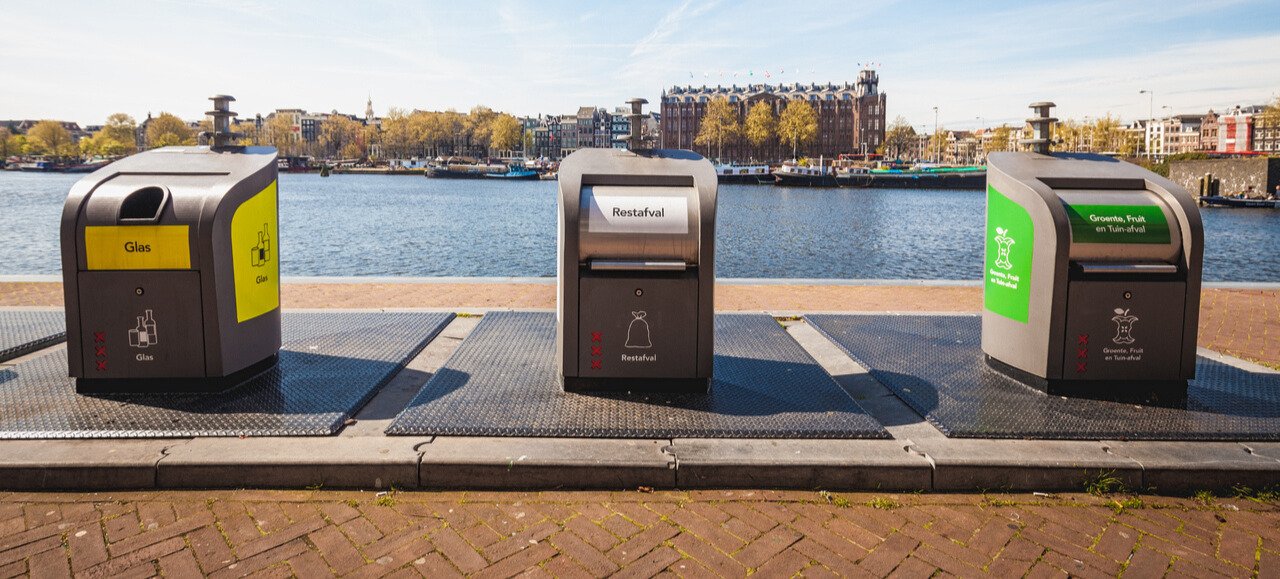How circular policies of Amsterdam, Copenhagen and Glasgow fall short on social and environmental justice

New Utrecht University-led research shows that circular economy strategies in Amsterdam, Copenhagen and Glasgow focus primarily on economic competitiveness and technological innovation, and fail to adequately promote social justice and environmental stewardship.
The circular economy concept has in recent years become a central discourse for addressing the sustainability challenges of today’s world. The approach proposes creating a system where resources are sustainably and democratically circulated, shared, reused, refurbished, redistributed and recycled to reduce our overall ecological footprint while providing for everyone's resource needs.
Cities central to achieving a circular economy
Cities play a central role in achieving a circular economy. They consume 80% of global natural resources, produce half of the world’s waste, three-quarters of greenhouse gas emissions, and are responsible for around 80% of global GDP. Many cities across the world are now taking steps towards the transition. The Amsterdam Circular Strategy 2020-2025, for example, aims to halve the use of new raw materials by 2030 and to become a fully circular city by 2050.
A recent Utrecht University study published in the Journal Local Environment analysed the circular economy strategies of three European taking the lead in the circular transition. It found that in Amsterdam, Copenhagen and Glasgow, circular policies are mainly used as a way to boost economic growth in the waste management and recovery sectors without disrupting unsustainable industries or taking strong enough actions to systemically reduce social and environmental injustices. “Economic growth is pursued as a positive societal goal and objective,” says Martin Calisto Friant, who led the study as part of his PhD at UU’s Copernicus Institute of Sustainable Development. “But growth is intrinsically tied to energy and material consumption, and recycling and recovery technologies can only supply a fraction of necessary raw materials in a continuously growing economy”.
Growth is intrinsically tied to energy and material consumption, and recycling and recovery technologies can only supply a fraction of necessary raw materials in a continuously growing economy
Amsterdam focused too much on economic growth
In April 2020 Amsterdam made international headlines as the first municipality in the world to embrace the ‘doughnut model’, envisioning a circular city that ensures a good life for everyone within the planetary boundaries. “Our research shows that Amsterdam’s approach is holistic only on paper,” says co-author Walter Vermeulen, also based at the Copernicus Institute.
The authors argue that by not distributing wealth, power, and property away from those who overshoot their fair share of planetary resources and towards those who undershoot it, Amsterdam and the other two cities in the study will not fundamentally change unequal societal relations. “Social policies are instead tied to the pursuit of economic growth, which will only worsen our intertwined social and ecological crises,” Vermeulen continues.
Our research shows that Amsterdam’s approach is holistic only on paper
Better circular strategies
So how can cities improve their circular strategies? To ensure social justice, the researchers propose a number of policies. For example, cities should encourage circular policies that redistribute unused building stock and promote non-profit cooperatives. “This could mean introducing taxes on speculation and vacant properties, or helping cooperatives by prioritising them in public procurement practices,” says Calisto Friant.
To improve ecological outcomes, the researchers emphasise a focus on developing compact multi-functional neighbourhoods. Compact cities that provide a range of amenities and services within walking or biking distance reduce the need for car travel, and prevent encroachment into natural areas. “This must go hand in hand with policies that conserve and restore biodiversity, and promote equity in the access to key social and environmental infrastructure like museums, community centres, schools, parks and green spaces” says Calisto Friant.
Finally, the authors propose policies that ensure political legitimacy and equity. “Cities should democratise decision-making,” says Calisto Friant. “Participatory budgeting processes and deliberative assemblies, for example, can ensure the circularity transition takes place in an inclusive manner”.
Publication
Calisto Friant, M., Reid, K., Boesler, P., Vermeulen, W. J., & Salomone, R. (2023). Sustainable circular cities? Analysing urban circular economy policies in Amsterdam, Glasgow, and Copenhagen. Local Environment, 1-39.

